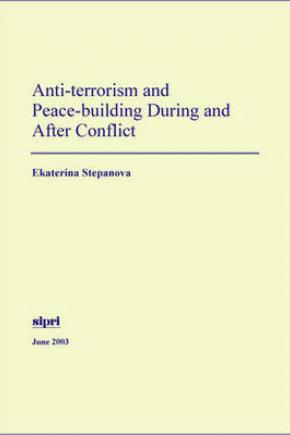Anti-terrorism and Peace-building During and After Conflict
The focus of this SIPRI Policy Paper is on the problems of countering and preventing terrorism used as a mode of operation in a number of violent conflicts around the world and of integrating anti-terrorism into the broader and more fundamental peace-building framework. The study explores not only the need to fight terrorism as a task for the security (or enforcement) component of an international peace-building effort or national 'stabilization' campaign but also the more neglected subject of the use of political, legal, socio-economic, civil-society and other peace-building instruments for the purposes of countering and preventing terrorism in areas torn by and re-emerging from violent conflict.
While the study stresses the importance for anti-terrorism of efforts to build a functional and legitimate state capacity in failed or weak states, undertaken as part of peace-building, it also argues that formal mechanisms, instruments and institution-building processes are not a panacea for countering terrorism. In the peace-building context, anti-terrorism also demands an exploration of less formalized ways in which the main prerequisites for and comparative advantages of groups involved in conflict-related terrorism, such as their structural capabilities and ideologies, can be dealt with.
1. Introduction
2. The security context
3. The political and legal context
4. The socio-economic context
5. In lieu of conclusion: A medium-term anti-terrorist strategy

